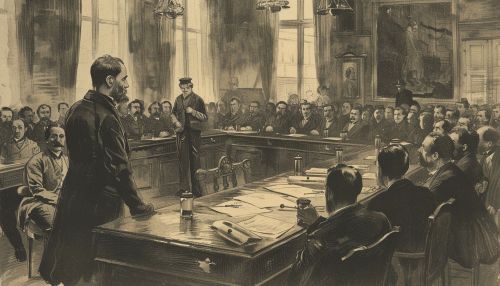Paris Commune
Introduction
The Paris Commune was a radical socialist and revolutionary government that ruled Paris from March 18 to May 28, 1871. It emerged in the aftermath of the Franco-Prussian War and the collapse of the Second French Empire. The Commune was characterized by its progressive policies and its attempt to establish a more egalitarian society. This article delves into the historical context, the events leading up to the Commune, its governance, policies, and its eventual downfall.
Historical Context
Franco-Prussian War
The Franco-Prussian War (1870-1871) was a conflict between the Second French Empire and the Kingdom of Prussia, which later became the German Empire. The war resulted in a decisive German victory, leading to the fall of Emperor Napoleon III and the proclamation of the Third Republic in France. The war had a profound impact on French society, exacerbating existing social and political tensions.
Siege of Paris
During the Franco-Prussian War, Paris was besieged by German forces from September 1870 to January 1871. The Siege of Paris caused severe hardships for the city's inhabitants, including food shortages and economic disruption. The siege also intensified anti-government sentiments among Parisians, who felt abandoned by the national government.
Formation of the Commune
Uprising of March 18, 1871
The immediate trigger for the formation of the Paris Commune was the attempted disarmament of the National Guard by the French government on March 18, 1871. The National Guard, composed mainly of working-class Parisians, resisted the government's efforts, leading to a popular uprising. The government, led by Adolphe Thiers, fled to Versailles, leaving Paris under the control of the insurgents.
Establishment of the Commune
On March 26, 1871, elections were held in Paris to form a new municipal council, which became known as the Paris Commune. The council was composed of various political factions, including socialists, anarchists, and radical republicans. The Commune officially declared its establishment on March 28, 1871.
Governance and Policies


Democratic Reforms
The Paris Commune implemented several democratic reforms aimed at increasing political participation and accountability. These included the abolition of the standing army in favor of a citizens' militia, the establishment of universal male suffrage, and the introduction of direct democracy mechanisms.
Social and Economic Policies
The Commune pursued progressive social and economic policies to address the needs of the working class. These included the regulation of working hours, the prohibition of night work in bakeries, and the establishment of workers' cooperatives. The Commune also sought to provide free education and secularize schools.
Women's Rights
The Paris Commune made significant strides in advancing women's rights. Women played active roles in the Commune, both as participants in the uprising and as members of various committees. The Commune supported gender equality and women's suffrage, although these policies were not fully implemented before its fall.
Downfall of the Commune
The "Bloody Week"
The downfall of the Paris Commune began with the military offensive launched by the French government in Versailles. From May 21 to May 28, 1871, government forces systematically recaptured Paris in what became known as the "Bloody Week" (Semaine Sanglante). The fighting was brutal, with thousands of Communards and civilians killed.
Repression and Aftermath
In the aftermath of the Commune's fall, the French government conducted a harsh repression campaign against the Communards. Thousands were executed, imprisoned, or exiled. The repression had a lasting impact on the French labor movement and left a legacy of bitterness and division in French society.
Legacy
The Paris Commune has had a profound influence on socialist and revolutionary movements worldwide. It is often cited as an early example of a workers' government and has inspired various political ideologies, including Marxism and anarchism. The Commune's legacy continues to be a subject of debate and analysis among historians and political theorists.
